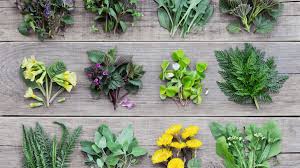
Breaking News
 Japanese biologist Yoshinori Ohsumi won the Nobel Prize for discovering how the body...
Japanese biologist Yoshinori Ohsumi won the Nobel Prize for discovering how the body...
 IT BYPASSES THE RETINA. IT BYPASSES THE OPTIC NERVE. IT SENDS IMAGES STRAIGHT...
IT BYPASSES THE RETINA. IT BYPASSES THE OPTIC NERVE. IT SENDS IMAGES STRAIGHT...
 PROMOTING THE NATIONAL DEFENSE BY ENSURING AN ADEQUATE SUPPLY OF...
PROMOTING THE NATIONAL DEFENSE BY ENSURING AN ADEQUATE SUPPLY OF...
 REAL-ID, Mail-Order CDLs, and America's CDL Free-for-All.
REAL-ID, Mail-Order CDLs, and America's CDL Free-for-All.
Top Tech News
 New Spray-on Powder Instantly Seals Life-Threatening Wounds in Battle or During Disasters
New Spray-on Powder Instantly Seals Life-Threatening Wounds in Battle or During Disasters
 AI-enhanced stethoscope excels at listening to our hearts
AI-enhanced stethoscope excels at listening to our hearts
 Flame-treated sunscreen keeps the zinc but cuts the smeary white look
Flame-treated sunscreen keeps the zinc but cuts the smeary white look
 Display hub adds three more screens powered through single USB port
Display hub adds three more screens powered through single USB port
 We Finally Know How Fast The Tesla Semi Will Charge: Very, Very Fast
We Finally Know How Fast The Tesla Semi Will Charge: Very, Very Fast
 Drone-launching underwater drone hitches a ride on ship and sub hulls
Drone-launching underwater drone hitches a ride on ship and sub hulls
 Humanoid Robots Get "Brains" As Dual-Use Fears Mount
Humanoid Robots Get "Brains" As Dual-Use Fears Mount
 SpaceX Authorized to Increase High Speed Internet Download Speeds 5X Through 2026
SpaceX Authorized to Increase High Speed Internet Download Speeds 5X Through 2026
 Space AI is the Key to the Technological Singularity
Space AI is the Key to the Technological Singularity
 Velocitor X-1 eVTOL could be beating the traffic in just a year
Velocitor X-1 eVTOL could be beating the traffic in just a year
Ten wild edibles in North America that could save you in a survival situation

Across North America's forests, fields, and wetlands grows an unregulated apothecary — plants densely packed with vitamins, minerals, and healing compounds. But this bounty comes with a caveat: for every life-sustaining wild green or berry, there exists a nearly identical twin capable of inducing organ failure.
Survival isn't just about stockpiling beans and bullets — it's about recognizing the land's hidden abundance while avoiding its lethal decoys. This is primal knowledge, the kind that sustained indigenous cultures for millennia and can keep modern foragers alive when supply chains crumble.
Key points:
Wild edibles from dandelions to cattails provide emergency calories, critical nutrients, and natural medicine.
Deadly lookalikes like death camas (vs. wild garlic) and horse nettle (vs. stinging nettle) demand 100% identification certainty.
Foraging ethics protect ecosystems: Never over harvest, avoid polluted areas and respect private property.
Processing methods matter: leaching acorns and neutralizing nettle stings make these otherwise toxic plants edible.
Saw palmetto berries (immune support) and red clover (blood purifier) offer medicinal options.
Wild food as survival insurance
The dandelion (Taraxacum officinale), dismissed as a lawn weed, carries more vitamin A than carrots and enough potassium to rival bananas. Its root, when roasted, becomes a caffeine-free coffee substitute rich in prebiotic inulin — a gut health essential when processed foods vanish. But complacency kills: false hawksbeard and catsear mimic dandelion leaves, though their branched flower stems and lack of milky sap betray them.



